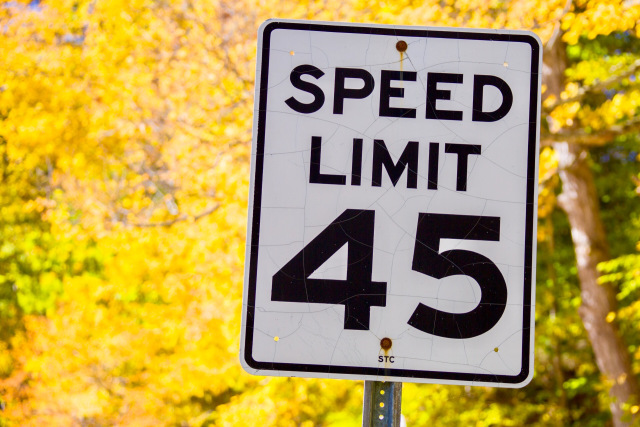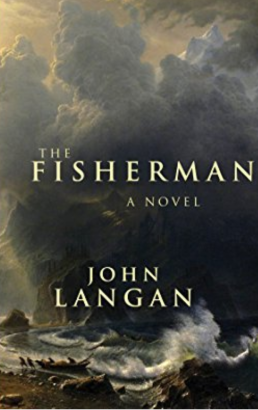
Devalued. Wronged. Sure you’re right but made to endure treatment as if you’re not. Trampled over, presumed upon. Penalized or bullied. When have you, in a large and life-changingly painful way (or in a smaller, yet still hurtful way), been picked on? And what do you do with the left-over wounds?
When you suffer through insulting moments, whether small or large, your scars heal only as you think on Jesus. Only then. Only as you think on His strength, His power, His love-filled otherness, all poured out for you.
When I need to remember Jesus’ love as the transforming balm in devaluing situations, my mind often goes to a past, unexpected experience:
With a car full of kids and lots of laughter from the backseat, it suddenly dawned on me that I’d not seen a speed limit sign for some time. Highway signs had been reading 65 mph, with four lanes stretching as far as we could see, and only the occasional passing truck headed to some rural destination. So I confidently stayed at 65 and settled in to enjoy the laughter. But as I rounded a curve, his car was there (waiting?), lights flashing instantly, swerving around in the median to pull me over.
 I didn’t see the new speed limit sign — until I’d stopped and fumbled for my license. Then I looked in my rear-view mirror. There it was — right at the point where I’d rounded the curve — clear as day — 45.
I didn’t see the new speed limit sign — until I’d stopped and fumbled for my license. Then I looked in my rear-view mirror. There it was — right at the point where I’d rounded the curve — clear as day — 45.
I felt had.
Later, I heard from others who travel that route, that yes, I was had. Everyone (but me) seemed to know that the area was a speed trap. I felt offended. I felt abused by the system. I was mad at Siri that she hadn’t sent me a different route. I felt wrongly accused. I felt set up! The injustice! How dare they lay a trap for me.
No mercy decisions
The officer was kind and gentlemanly, almost rehearsed in his expectation that I would be defensive and belligerent. I wasn’t. I was just shocked. I was honestly confused and startled. Why had he pulled me over? I actually felt sorry for him — he seemed nervous when, with teary eyes, I asked for mercy. “I’m sorry, ma’am,” he said. He wasn’t allowed to make road-side mercy-decisions.
I know the sermon illustration about my still owing the debt for my penalty, even if I didn’t know the correct speed. I know I was caught super-speeding and I owe that municipality money, even if I assert that I didn’t have time to see their new speed limit sign. I understand all that. But I’m still trying to give a name to the anger I felt at the injustice of being set up.
I don’t like their their speed trap. I somehow deserved better.
With the blink of an eye
And then I think of Jesus, who truly was wrongly accused, and set up, and abused. Jesus, who not only taught His disciples to turn the other cheek (Mt. 5:38-39), but also offered Himself to be spit upon and struck by vengeful creatures He Himself had created (Mk. 14:65, 15:16-20). Jesus, who could have obliterated them all with a word — who not only taught His disciples the ways of His kingdom, but then demonstrated in ways I read of with astonishment. He stood silent before His accusers, offering Himself as a lamb led to slaughter (Is. 53:7).
He didn’t say “do as I say” and then not do as He said.
Hear this correctly
We know when Jesus teaches about turning the other cheek (in Matthew 5) that He is not banning self-defense against a serious personal assault, or banning the use of force by government, or even saying we shouldn’t flee to avoid harm. He speaks, rather, of our heart’s desire for personal revenge when we’re insulted (as in the insult of the back-handed slap against the cheek in the Matthew 5 teaching). He speaks of our need to trust God when we’re unjustly treated. We’re to trust that He makes all things right for us, in the end (Rom. 12:19).
Jesus allowed the Sanhedrin to spit on Him, and the guards to beat Him, and the soldiers to mock and strike Him, when with the blink of an eye He could have destroyed them all. He had done no wrong, yet He allowed them to set Him up, to “trap” Him, so that he could pay for those who had done wrong. He endured the mocking and then death on the cross, scorning the shame of it all, that His bride might be cleansed and presented in glory as perfect and pure and spotless (Heb. 12:2, Eph. 5:25-27).
Those who follow and love Him are His bride. He wanted to pay our eternal debt.
Something so very different
Though I know I was technically wrong, it’s still hard for me to shake the angry feeling that I was set up. I want that municipality to come clean. I want them to admit that I was set up at their speed trap because they wanted to gain from my bank account. I want them to relent and say I was right. And because I recognize within myself the desire for, not necessarily vengeance, but certainly vindication, I love Jesus more.
Jesus didn’t require the Sanhedrin or Pilate to admit that they were setting Him up for their own gain. He didn’t call down His legions of angels to do any vengeful bidding. He didn’t even ask for vindication. He did something quite different. He freely gave His life. For me. For you.
I love Jesus more because He didn’t smash His false accusers. Instead, He allowed Himself to be led to slaughter for a reason I cannot comprehend — to pay with His life the debt He did not owe to free me from the debt I do.
Oh wondrous love! Love that could smash, but instead saves. Love I bow before, and yearn to see face to face. Love that salves my soul and quietens my heart.
__________________________
(Parts of this post originally appeared in January, 2015, as 45 in the rear-view mirror.)
______________________________________________
Advertisements Share this:




